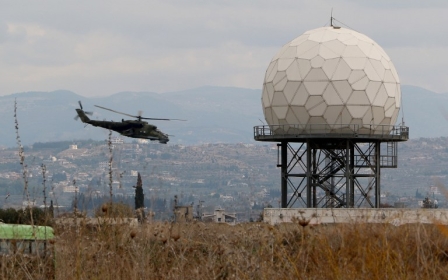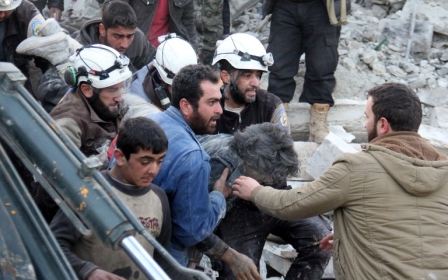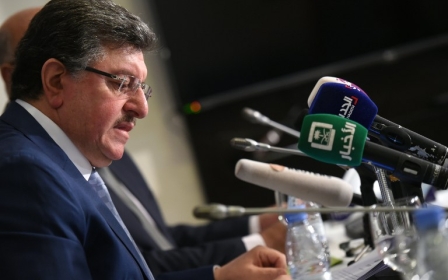Clashes near Damascus after negotiator killing: Monitor

Heavy clashes erupted overnight between pro-Assad and rebel forces near Damascus after the official who negotiated a deal to restore water to the Syrian capital was killed, a monitor said Sunday.
Government workers had entered the formerly rebel-held area in the Wadi Barada region near Damascus on Friday to begin restoring water to the capital after weeks of shortages.
"Fierce fighting broke out after midnight between regime forces, fighters from Hezbollah and the rebels, after gunmen killed the negotiator, Ahmed al-Ghadban," said Rami Abdel Rahman of the Syrian Observatory for Human Rights.
Ghadban had been on his way to the Ain al-Fijeh spring with maintenance teams, he told AFP.
Following the killing of Ghadban, "regime forces and their allies tried to advance to Ain al-Fijeh," bombarding rebel positions with heavy artillery, said Abdel Rahman.
The two sides accused each other of killing the retired army officer, who had only assumed his duties to restore the water supply on Saturday.
Under the agreement, Ghadban was to oversee teams working to repair the infrastructure that supplies the capital with water in exchange for a cessation of hostilities and the withdrawal of rebel fighters willing to do so.
The official SANA news agency reported on Saturday night that "terrorists opened fire" on Ghadban after he left a meeting with armed groups in the village of Ain al-Fijeh.
Activists and civil committees in Wadi Barada denounced the killing of Ghadban, which they said had been ordered by the regime with the intention to "kill any hope of a peaceful solution".
In a joint statement, they urged rebel factions not to attend peace talks in the Kazakh capital Astana later this month and called for international observers to monitor the ceasefire.
Fighting has persisted in Wadi Barada since the entry into force on 30 December of the ceasefire brokered by Russia and Turkey.
The violence caused damage to pipes, leaving more than five million people in Damascus without water.
The ceasefire and planned talks are the latest effort to negotiate an end to a conflict that has killed more than 310,000 people since it began with anti-government protests in March 2011.
New MEE newsletter: Jerusalem Dispatch
Sign up to get the latest insights and analysis on Israel-Palestine, alongside Turkey Unpacked and other MEE newsletters
Middle East Eye delivers independent and unrivalled coverage and analysis of the Middle East, North Africa and beyond. To learn more about republishing this content and the associated fees, please fill out this form. More about MEE can be found here.




